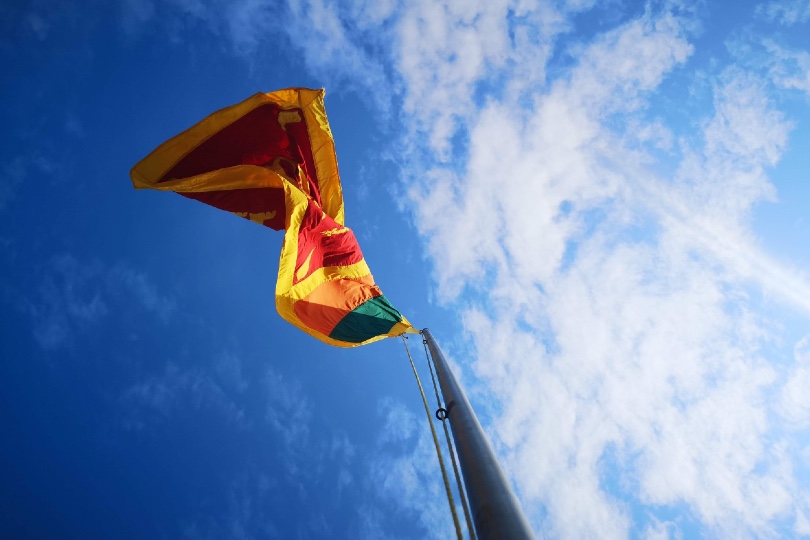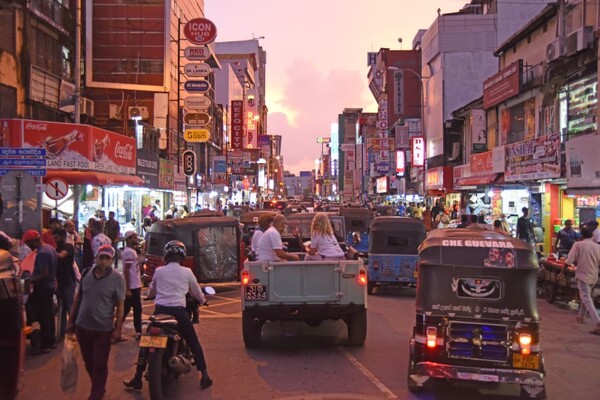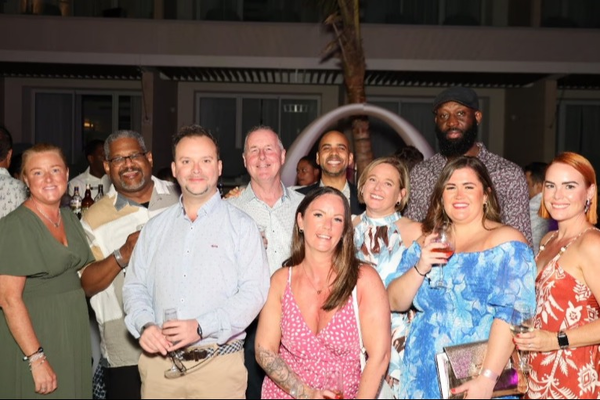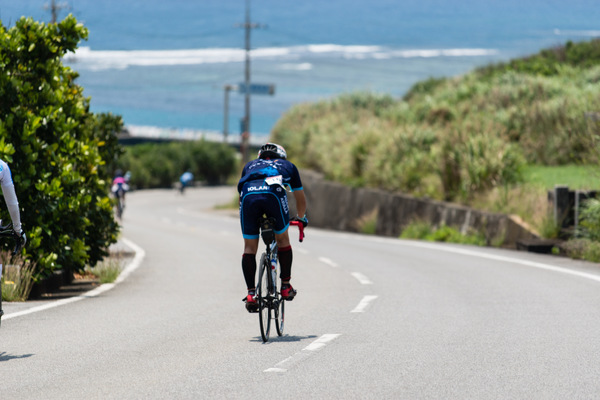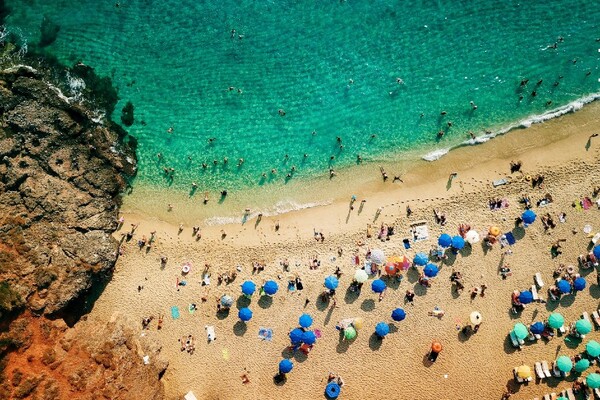Sri Lanka, and the long hard road to recovery
 Gary Noakes
Gary NoakesInflation, political turmoil and a fuel crisis has set back Sri Lanka’s recovery from the pandemic. Gary Noakes reports for TTG.
It’s Saturday night in Colombo’s Park Street Mews, a street in Sri Lanka’s capital packed with bars and restaurants – and in one venue where locals far outnumber tourists, the mixologist sums up the country’s predicament.
“The next six months will be crucial; we need people to come here and for the money made in Sri Lanka to stay in Sri Lanka,” says Ash Handi, who spent six years working in East London’s trendy bars before heading back to his birthplace pre-pandemic.
He is a rarity in Sri Lanka’s tourism industry in that thousands have left to work abroad following the country’s economic crisis, which began this summer just as it emerged from Covid.
The exodus of tourism workers to places like Dubai will only cease, he believes, if tourists return. Handy, though, is hopeful, and has no intention of returning to London. “We have solved most of the issues; everyone wants to get back on track," he says. "Right now, we just need the international community’s support. I think it’s important I’m here right now.”
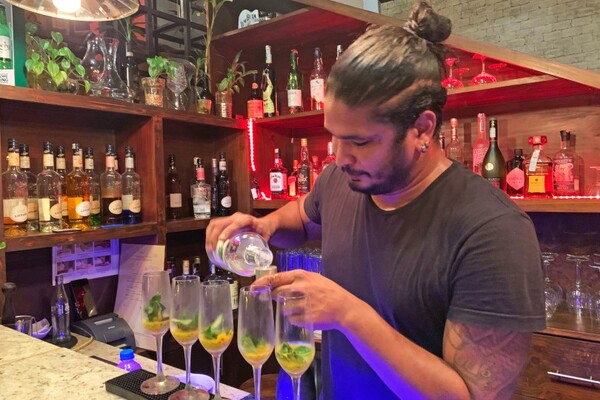
Handy took part in July’s anti-government protests that saw the country’s president seek exile amid TV footage of locals crowding into his mansion and using his swimming pool. The protests resulted from corruption and poor government decision-making, causing a foreign exchange crisis, fuel shortages, power outages and soaring inflation.
It dealt a hammer blow to Sri Lanka’s tourism industry, still reeling from the Easter 2019 terrorist attacks and pandemic. This trio of events has meant three-and-a-half years of poor tourism revenue.
Tourists are trickling back, but in Colombo, the Movenpick is at just 30% occupancy and its nightly rates have fallen from around $250 to about $130. The hotel overlooks the sea and Galle Face Green, where many Colombians promenade and play cricket. After the cocktails, I head there and I’m almost the only tourist at a packed street food festival at a site where only a few months ago there were huge anti-government demonstrations. It’s another sign normality is returning.
Talking to some locals, the general feeling is Sri Lanka’s leading politicians now know they cannot get away with the corruption and mismanagement of the past. “I have never seen Sri Lankans so united,” one tourist guide claims, although another, older local proves more wary: “Let’s not say we’re confident – we’re optimistic,” she says.
Opposition MP Gajen Ponnambalam tells me: “We’ve had a terrible two years; Sri Lanka in the past has been very corrupt – the people have just woken up [to the fact]." He believes there will be no repeat of this summer’s scenes on the island’s streets. “Politicians have realised they can’t ignore the people," he continues. "I don’t think it will erupt again; we are beyond that.”
Ponnambalam is blunt in his assessment of the country’s tourism industry – the third highest earner of foreign exchange after ex-pat workers and the textile industry: “If the tourist industry does not pick up, then we will just not get out of this rut; we’re just not going to recover.”
He adds Sri Lanka’s inflation was not an issue for visitors, but an advantage. “From a tourist point of view, the rupee has crashed and they are in a much better position – but for locals, it’s a challenge.”
I was warned before my visit there may be queues for fuel, but we witness only a few short lines barely extending beyond forecourts. Stockpiling is now forbidden, with a 20-litre restriction on purchases. However, tourist vehicles are exempt, such is the need for foreign exchange.
‘Good ripples’
Jean-Marc Flambert, who represents seven properties in Sri Lanka and the Maldives via Secrets of Ceylon, explains: “All hotels and destination management companies are allowed to buy fuel in US dollars because they earn in US dollars. The logic is the dollar goes to the petrol companies, which allows them to buy more fuel. Fuel tax is 30%, so that goes towards buying fuel to be used by the general population.”
The other issue is power outages – my hotels experience power cuts for two one-hour periods a day, but back-up immediately kicked in. “All accommodation that’s sold through the trade will have big capacity generators – the power schedule is sent every two to three days via a WhatsApp message,” Flambert explains.
Visits to a city supermarket and rural grocery stall settle any worries about food supplies. However, inflation and fuel shortages are making life difficult for locals, with one stall owner explaining to me a kilo of tomatoes – usually 340 rupees – was currently R520 and hit R800 in October due to transport costs.
The collapse of the rupee – now at R437 to the pound compared with R265 in March when the crisis began – means UK visitors have no such fears. A roti lunch bought from a shop or street stall is still a bargain for £1 to £1.50 and a main course in a fine dining room in the capital £8 to £10. The only place where the foreign exchange crisis becomes troubling is at Colombo airport, where almost all shops and cafes have switched to the dollar – it’s only after a full tour of the concourse I find a cafe accepting rupees and avoid paying $6 for a coffee.
Among local tourism companies, it is a case of looking forward to 2023. Paddy Paul, managing director of ground handler Golden Isle Travels, is an optimist: “Business is trickling in, but not as much as we would like, but we’re seeing a lot of good ripples for next year,” she says. “Currently we have no issues with fuel; the general public do, but we applied to the tourist board and within 24 hours we had a permit.”
Likewise, Flambert has a message to the UK trade as Sri Lanka approaches peaks season: “The Brits have always been the ones to lead the recovery. Once again, we’re appealing to you to do what you do best; Sri Lankan hospitality is ready to welcome your clients.”
And welcome they will be, because right now, the empty hotels are a forlorn sight. Anyone with reservations about visiting Sri Lanka should remember the UK has its own fuel and food supply issues, plus we too are experiencing soaring inflation. We are also on our third prime minister this year, including one that lasted only 44 days, and there is talk of power cuts to come this winter, yet no one is saying not to visit. You may wish to remind your clients of this.
Sign up for weekday travel news and analysis straight to your inbox

Gary Noakes
Supplier Directory
Find contacts for 260+ travel suppliers. Type name, company or destination.
